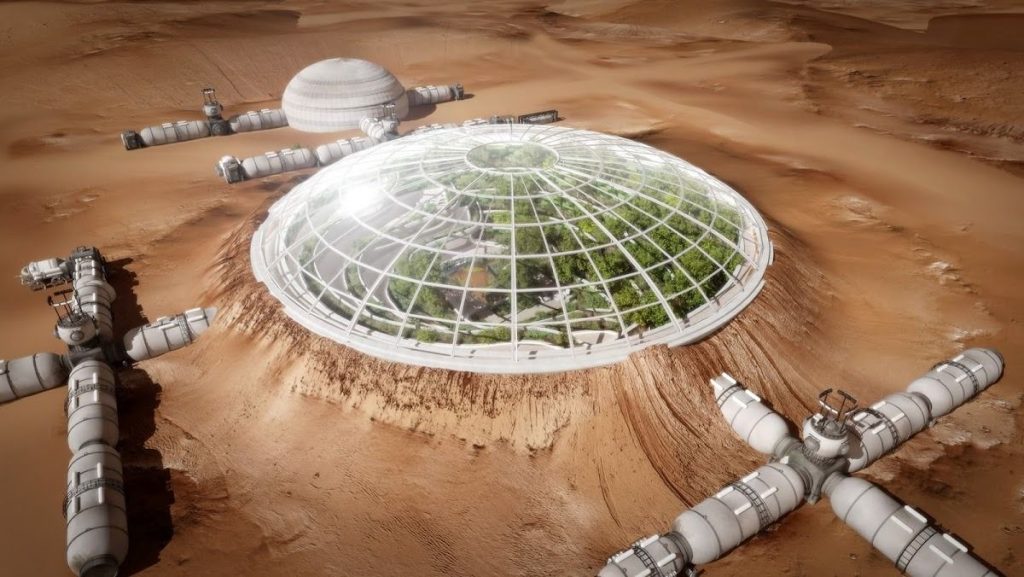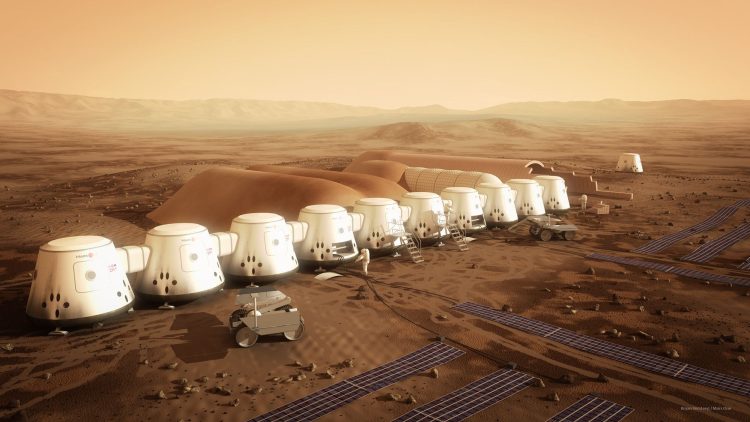Introduction
The dream of colonizing Mars has captured the human imagination for decades. With its proximity to Earth and the potential for scientific discovery, Mars represents the next frontier for human exploration beyond our home planet. Recent advancements in space technology, driven by both governmental agencies like NASA and private entities like SpaceX, have brought Mars colonization closer to reality. However, establishing a sustainable human presence on Mars presents numerous challenges that go far beyond the basic act of getting there. From life support systems to resource management, energy production, and psychological health, a Mars colony will require cutting-edge technology, strategic planning, and significant resources to succeed. In this article, we will explore the technological, environmental, and human factors involved in building a sustainable human presence on the Red Planet.
1. The Challenges of Mars Colonization: An Overview
Mars is not an easy place to live. Its environment is inhospitable to human life, with extreme temperatures, high radiation levels, and a thin, unbreathable atmosphere. Unlike the Moon, which offers relatively easier access to resources, Mars requires a more complex approach to colonization. In this section, we will outline the major challenges that need to be overcome to establish a viable and sustainable human presence.
1.1 Extreme Environmental Conditions
Mars is a cold and barren planet with an average surface temperature of -60°C (-80°F). Its atmosphere is 100 times thinner than Earth’s, composed mostly of carbon dioxide (95%) and only trace amounts of oxygen. In addition, Mars lacks a magnetic field, which exposes its surface to high levels of harmful cosmic and solar radiation. These conditions pose significant challenges to long-term habitation, requiring advanced technologies for protection and survival.
1.2 Distance and Travel Time
Mars is, on average, about 225 million kilometers (140 million miles) away from Earth, and a trip to the Red Planet can take between 6-9 months depending on the alignment of the planets. This presents significant logistical and resource challenges, as astronauts will need to carry all their supplies for the journey, along with systems capable of ensuring their survival during the months-long transit.
2. The Technology Needed for Mars Colonization
The key to a sustainable colony on Mars lies in developing technologies that can address the planet’s unique challenges. These technologies range from life support systems to habitat construction, energy production, and resource utilization. In this section, we will explore the critical technological advancements that will enable a long-term human presence on Mars.
2.1 Life Support Systems: Breathing and Drinking on Mars
A reliable and sustainable life support system is essential for any Mars colony. The atmosphere of Mars is unsuitable for human respiration, and there is no liquid water readily available on the surface. Developing closed-loop life support systems that can recycle air and water will be crucial. Technologies such as the MOXIE (Mars Oxygen In-Situ Resource Utilization Experiment), which extracts oxygen from the Martian atmosphere, are already being tested on NASA’s Perseverance rover. Additionally, water extraction systems, such as those that extract water from the Martian soil, will play a key role in providing potable water for the colonists.
2.2 Building Habitats: Creating Shelter from the Elements
Due to Mars’ hostile environment, building durable habitats is essential. These habitats will need to protect colonists from extreme temperatures, radiation, and dust storms. There are several approaches to building habitats, including:
- Inflatable Habitats: Inflatable structures like Bigelow Aerospace’s BEAM module are lightweight, easy to transport, and can be deployed quickly. These structures can be reinforced with additional materials to provide protection from radiation.
- 3D-Printed Habitats: Utilizing local Martian materials, such as regolith (Mars soil), for 3D printing habitats is a promising solution. NASA’s SOM (Sustainable Off-World Manufacturing) project is exploring how 3D printers can use local resources to build structures on Mars, minimizing the need to transport materials from Earth.
- Underground Habitats: Some researchers propose the idea of building underground colonies, utilizing the Martian soil as a natural shield against radiation and temperature fluctuations.
2.3 Energy Production: Powering a Mars Colony
Energy generation is a critical need for a Mars colony. Solar energy is the most viable option for powering Mars habitats, given the planet’s relative proximity to the Sun. However, solar power on Mars is less efficient due to the planet’s thin atmosphere, which scatters sunlight and creates dust storms that can block sunlight for extended periods.
- Nuclear Power: Nuclear reactors, such as NASA’s Kilopower project, are being developed to provide a reliable, consistent source of power on Mars. These small, portable reactors could provide continuous power, even during dust storms or the long Martian nights.
- Solar Panels: While less reliable than nuclear energy, solar power will still play a vital role in Mars colonization, especially during periods of good sunlight. Solar panels are being optimized for the harsh Martian environment, and large-scale solar farms could supplement nuclear energy.

3. Resource Utilization: Using Martian Resources for Survival
One of the most important aspects of building a sustainable colony on Mars is utilizing the planet’s natural resources. Transporting all the necessary materials from Earth would be prohibitively expensive, so developing technologies to use Martian resources is essential. This concept, known as In-Situ Resource Utilization (ISRU), involves harnessing local materials for building habitats, producing fuel, and generating energy.
3.1 Mars Regolith: Building with Martian Soil
Mars has abundant regolith (soil) that can be used to create building materials, extract water, or produce oxygen. In addition to 3D printing, researchers are exploring how regolith can be used to manufacture concrete-like materials. This would significantly reduce the need for transporting construction materials from Earth, making Mars colonization more feasible.
3.2 Extracting Water and Oxygen
While liquid water does not exist on the surface of Mars, there is evidence of ice beneath the soil. Technologies are being developed to extract this water for drinking, farming, and oxygen production. The MOXIE experiment has demonstrated the possibility of extracting oxygen from Mars’ carbon dioxide-rich atmosphere, and other technologies are being explored to produce fuel from Martian resources, such as methane.
3.3 Fuel Production: Creating Propellant for Return Trips
Creating fuel from local resources will be vital for the long-term sustainability of a Mars colony. Researchers are exploring methods of producing methane from Martian carbon dioxide and water. This would provide fuel for rockets to return to Earth, as well as power for various colony systems.
4. The Psychological and Social Challenges of Living on Mars
Living on Mars presents not only physical and logistical challenges but also psychological and social hurdles. Astronauts on Mars will be isolated from Earth for long periods, possibly years, and will have to deal with extreme confinement, distance from loved ones, and limited social interaction. Addressing these issues will be critical to ensuring the long-term success of a Mars colony.
4.1 Isolation and Mental Health
Long-term isolation, communication delays (up to 22 minutes each way), and the lack of social interaction with people outside the colony could lead to mental health challenges for Mars colonists. Providing psychological support through regular communication with Earth, as well as building a strong sense of community within the colony, will be key to maintaining mental well-being.
4.2 Social Dynamics and Teamwork
Colonists will need to work closely together, often in confined spaces, with limited resources. Effective communication, conflict resolution, and teamwork will be essential for the success of the colony. The psychological preparation of colonists before the mission, as well as continuous support during their stay, will be necessary to address these challenges.
5. The Path to Mars Colonization: Milestones and Future Prospects
Achieving Mars colonization will be a gradual process, with several key milestones to be reached along the way. The first step will likely involve sending robotic missions to scout the surface, followed by short-term human missions to conduct research and test life support systems. Ultimately, the goal will be to establish a permanent, self-sustaining colony on Mars.
5.1 First Steps: Robotic Missions and Research
NASA’s Mars 2020 rover and other missions will continue to gather crucial data about the Martian environment and test technologies needed for future human missions. Private companies like SpaceX are also working toward sending humans to Mars, with a planned launch in the coming decades.
5.2 The Role of International Collaboration
Mars colonization will likely require international collaboration, as the financial and technological challenges are too great for any single nation to handle alone. Partnerships between space agencies, private companies, and governments will be crucial in making Mars colonization a reality.
Conclusion
Colonizing Mars is an ambitious and complex endeavor, but it is no longer the stuff of science fiction. With advances in space technology, resource utilization, and life support systems, humans may soon establish a permanent presence on the Red Planet. However, many challenges remain, including technological, psychological, and social obstacles that must be addressed to ensure the long-term sustainability of a Martian colony. With continued innovation and collaboration, the dream of becoming an interplanetary species could become a reality, with Mars as our first step into the cosmos.











































Discussion about this post